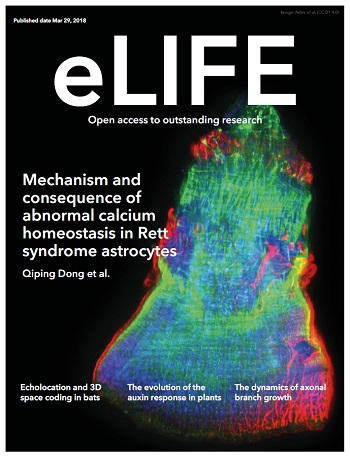Mir221/222 drive synovial hyperplasia and arthritis by targeting cell cycle inhibitors and chromatin remodeling components
IF 6.4
1区 生物学
Q1 BIOLOGY
引用次数: 0
Abstract
miRNAs constitute fine-tuners of gene expression and are implicated in a variety of diseases spanning from inflammation to cancer. miRNA expression is deregulated in rheumatoid arthritis (RA); however, their specific role in key arthritogenic cells such as the synovial fibroblast (SF) remains elusive. Previous studies have shown that Mir221/222 expression is upregulated in RA SFs. Here, we demonstrate that TNF and IL-1β but not IFN-γ activated Mir221/222 gene expression in murine SFs. SF-specific overexpression of Mir221/222 in huTNFtg mice led to further expansion of SFs and disease exacerbation, while its total ablation led to reduced SF expansion and attenuated disease. Mir221/222 overexpression altered the SF transcriptional profile igniting pathways involved in cell cycle and ECM (extracellular matrix) regulation. Validation of targets of Mir221/222 revealed cell cycle inhibitors Cdkn1b and Cdkn1c, as well as the epigenetic regulator Smarca1. Single-cell ATAC-seq data analysis revealed increased Mir221/222 gene activity in pathogenic SF subclusters and transcriptional regulation by Rela, Relb, Junb, Bach1, and Nfe2l2. Our results establish an SF-specific pathogenic role of Mir221/222 in arthritis and suggest that its therapeutic targeting in specific subpopulations could lead to novel fibroblast-targeted therapies.Mir221/222 通过靶向细胞周期抑制剂和染色质重塑成分驱动滑膜增生和关节炎
miRNA 是基因表达的微调器,与从炎症到癌症等多种疾病都有关联。类风湿性关节炎(RA)中 miRNA 的表达发生了失调;然而,它们在滑膜成纤维细胞(SF)等关键关节炎细胞中的具体作用仍然难以捉摸。先前的研究表明,Mir221/222在RA SFs中表达上调。在这里,我们证明 TNF 和 IL-1β 能激活小鼠 SFs 中 Mir221/222 基因的表达,但 IFN-γ 却不能。在huTNFtg小鼠中,SF特异性过表达Mir221/222会导致SF进一步扩张和疾病恶化,而完全消融Mir221/222会导致SF扩张减少和疾病减轻。Mir221/222 的过表达改变了 SF 的转录谱,点燃了参与细胞周期和 ECM(细胞外基质)调控的通路。对 Mir221/222 靶标的验证发现了细胞周期抑制剂 Cdkn1b 和 Cdkn1c 以及表观遗传调节因子 Smarca1。单细胞ATAC-seq数据分析显示,致病性SF亚群中的Mir221/222基因活性增加,并受到Rela、Relb、Junb、Bach1和Nfe2l2的转录调控。我们的研究结果确定了 Mir221/222 在关节炎中的特异性致病作用,并表明针对特定亚群的治疗可能会产生新型成纤维细胞靶向疗法。
本文章由计算机程序翻译,如有差异,请以英文原文为准。
求助全文
约1分钟内获得全文
求助全文
来源期刊

eLife
BIOLOGY-
CiteScore
12.90
自引率
3.90%
发文量
3122
审稿时长
17 weeks
期刊介绍:
eLife is a distinguished, not-for-profit, peer-reviewed open access scientific journal that specializes in the fields of biomedical and life sciences. eLife is known for its selective publication process, which includes a variety of article types such as:
Research Articles: Detailed reports of original research findings.
Short Reports: Concise presentations of significant findings that do not warrant a full-length research article.
Tools and Resources: Descriptions of new tools, technologies, or resources that facilitate scientific research.
Research Advances: Brief reports on significant scientific advancements that have immediate implications for the field.
Scientific Correspondence: Short communications that comment on or provide additional information related to published articles.
Review Articles: Comprehensive overviews of a specific topic or field within the life sciences.
 求助内容:
求助内容: 应助结果提醒方式:
应助结果提醒方式:


